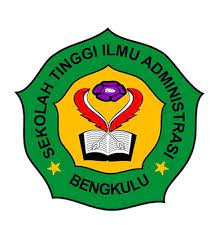Pengaruh Beban Kerja dan Budaya Organisasi Terhadap Loyalitas Karyawan Pada CV Asanka Wijaya
DOI:
https://doi.org/10.56135/jabnus.v3i2.174Keywords:
workload. organizational culture, employee loyalty, CV Asanka WijayaAbstract
In this study, the researcher aimed to investigate the effect of workload and organizational culture on employee loyalty at CV Asanka Wijaya. This is a descriptive-causal study and a quantitative research. The survey method was used with non-random sampling technique, specifically purposive sampling, to select a sample of employees. Data were collected using a Likert-scale questionnaire and analyzed using regression analysis and descriptive statistics. The statistical analysis conducted in this study was a simple linear regression, preceded by tests for validity, reliability, and classical assumptions as preliminary tests. This study indicates that workload has a partial negative effect on employee loyalty. The effect of this variable is 0.501, or 50.1%. and that organizational culture has a positive influence on employee loyalty by 0.362, or by 36.2%..
References
Ellyzar, M., & Yunus, M. (2017). The influence of transformational leadership and job satisfaction on employee performance through motivation and commitment (case study at PT. Perkebunan Nusantara III). International Journal of Science and Research, 6(9), 954-958.
Febriana, R., & Kustini, E. (2022). The effect of job stress and work environment on employee performance.
Journal of Business and Management, 5(1), 32-40.
Gunawan, F. (2017). Pengaruh Kompensasi dan Budaya Organisasi terhadap Loyalitas Karyawan PT. Victory International Futures. Agora, 5(1).
Ghozali, Imam. (2011). Aplikasi Analisis Multivariate dengan Program IBM SPSS 20. Semarang: Badan Penerbit-Universitas Dipenogoro.
Heryati. (2016). The influence of transformational leadership on employee job satisfaction and performance (case study at PT. X). Journal of Management and Business, 9(1), 27-38.
Mangkunagara, A. P. (2017). Human resource management: Perusahaan, edisi 2. Bandung: PT. Remaja Rosdakarya.
Mahayuni, N. L. P., & Dewi, M. S. (2020). The influence of compensation, organizational culture, and work environment on employee performance (case study at PT. ABC). Journal of Economics and Business, 3(2), 120-130. Putra, D., Rolos, R., et al. (2018). The effect of leadership style, job satisfaction, and organizational commitment on employee performance (case study at PT. XYZ). Journal of Applied Business and Economic Research, 16(2), 75-86.
Regiao, R. E. (2012). The influence of work motivation and job satisfaction on employee performance. Journal of Human Resource Management, 3(1), 23-32. Rivai, V. (2012). Human resource management, edisi 8. Jakarta: PT. Rajagrafindo Persada.
Robbins, S. P. (2013). Organizational behavior, edisi 15. Pearson Education, Inc. Rose,V. (2019).
Management and Business Riview, Vol 3, No2, 104-105
Schultz, D. P., & Schultz, S. E. (2011). Psychology and work today, edisi 10. Pearson Education, Inc. Sugiyono. (2017). Metode penelitian kuantitatif, kualitatif, dan R&D, edisi 25. Bandung: PT. Alfabet.
Sugiyono. (2018). Statistika untuk penelitian, edisi 12. Bandung: PT. Alfabet.
Witari, N. P., & Heryenzus, S. (2019). The effect of organizational culture and leadership style on employee job satisfaction and performance (case study at PT. XYZ). Journal of Management and Business, 12(2), 83-94
Downloads
Published
How to Cite
Issue
Section
License
Copyright (c) 2024 Monika Saputra; Samsul Akmal; Rahmat Al hidayat

This work is licensed under a Creative Commons Attribution-ShareAlike 4.0 International License.






